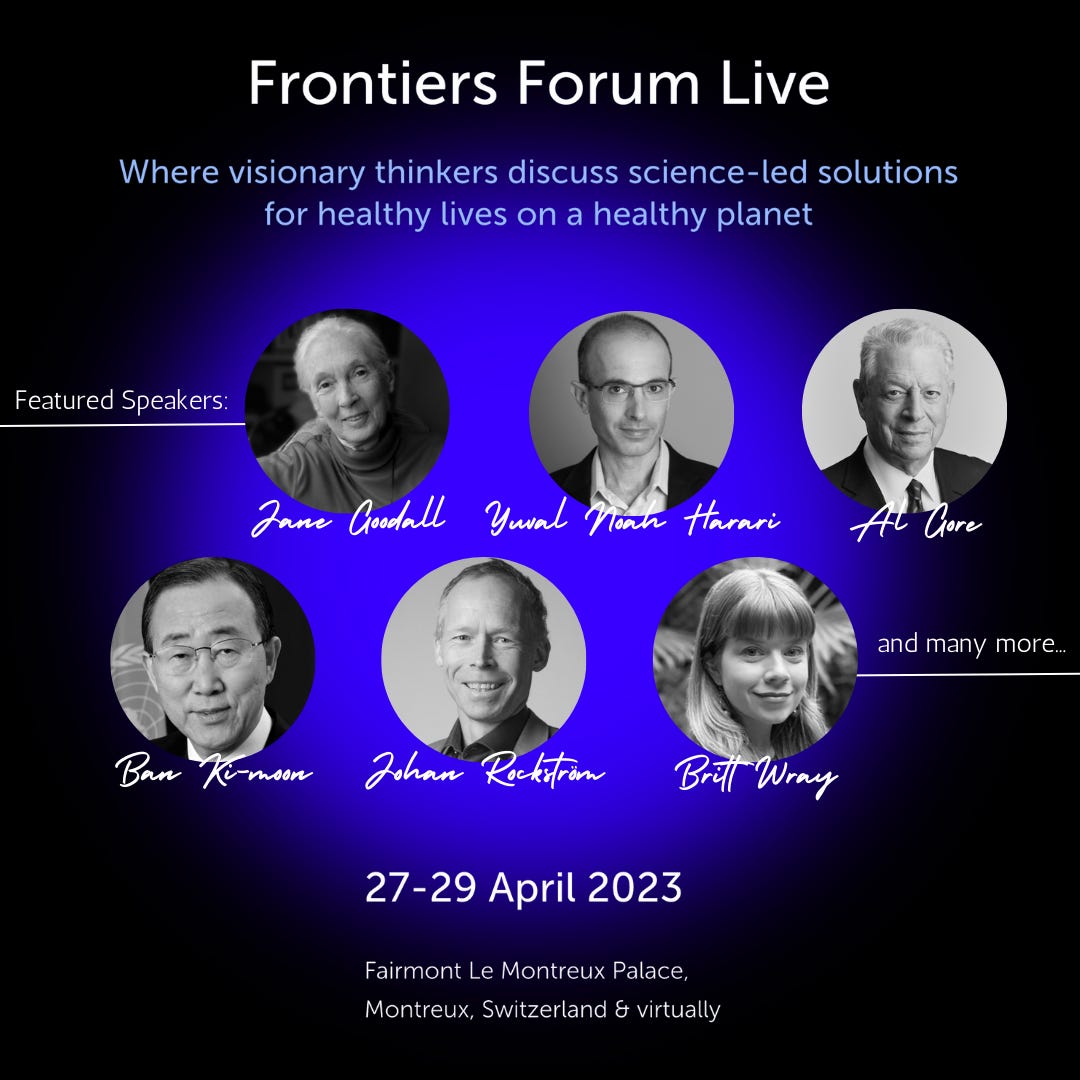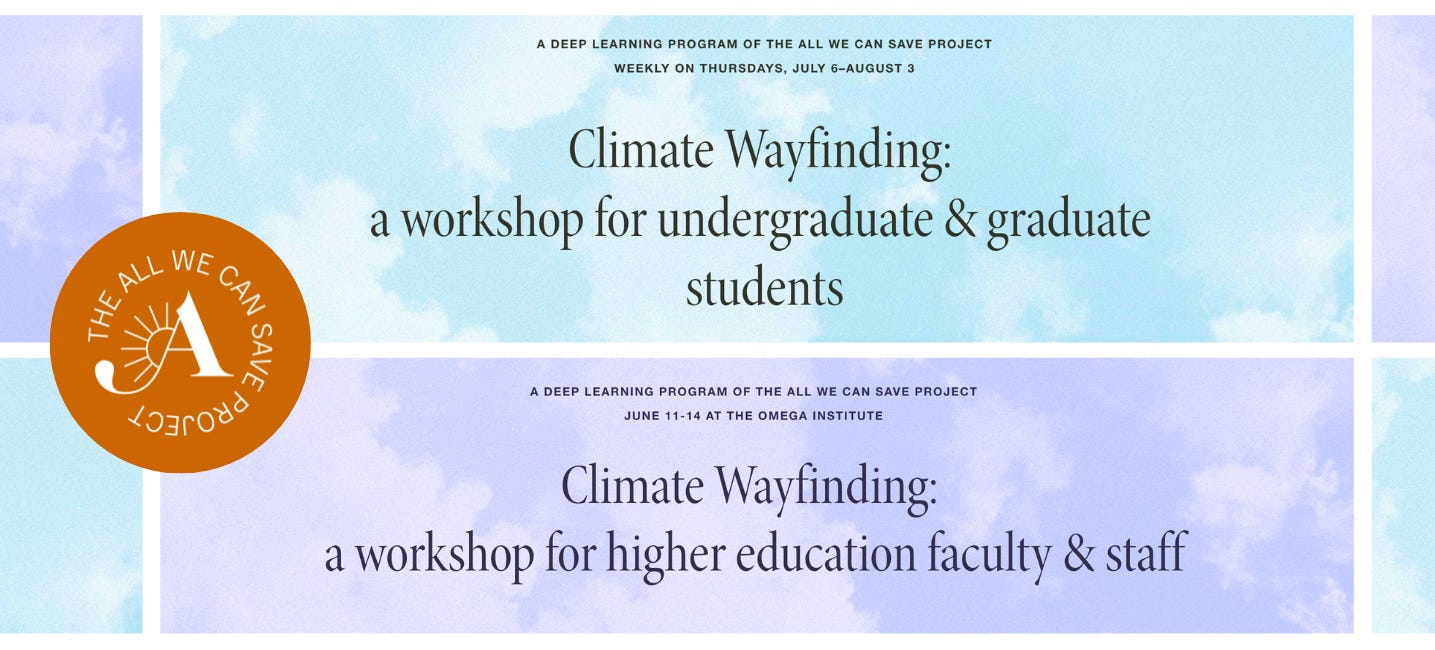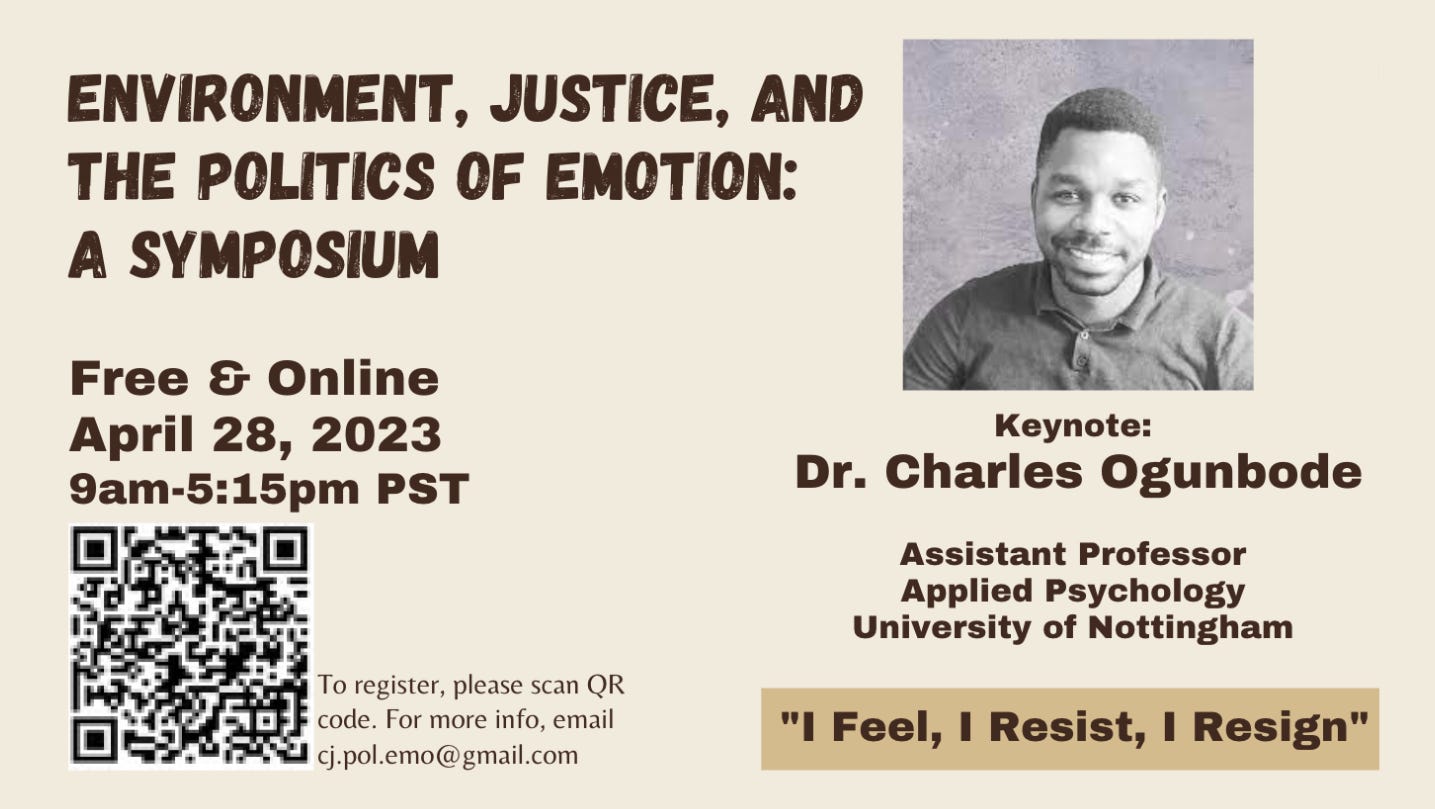“Why I’m so happy about eco-anxiety”
Writer Jared Bilski talks about living through a natural disaster
Hi there!
Welcome to Gen Dread, a newsletter about how the climate crisis is making us feel, why that’s happening, and what we can do about it. Subscribe now to find community, comfort, and practical coping strategies from experts all around the world.
A familiar feeling of dread
Jared Bilski writes River People Rebuild, a monthly newsletter about the personal side of natural disasters. His writing has appeared in The New York Times, The Washington Post, Newsweek, McSweeney's, Parents, among others. This week, he shared his story with Gen Dread:
I look down at the weather app on my phone and immediately feel the familiar pool of sweat starting to form on my back. It’s followed by a tightening in my chest and an increase in my already over-caffeinated heartbeat.
There’s a week’s worth of rain in the forecast, and I’m a mess over it.
The weather has always affected my mood to a degree. A cloudy day can destroy my motivation, a rainy morning can make getting out of bed feel like an impossible task — but the level of anxiety I feel lately is something altogether different from anything I’ve ever experienced.
Where it all began
It started soon after my Pennsylvania home was flooded in a 2021 storm that would later be declared a federal disaster. The remnants of “Hurricane Ida” — a name that sounds much tamer than the event itself — brought record-shattering flooding to parts of Pennsylvania, New York, New Jersey and Delaware. It also brought four-and-half feet of water into the first floor of my home. I was in the house when it flooded, and unlike some of the more optimistic (delusional?) people in my area, I can’t write the storm off as a fluke, a once-in-a-lifetime event because, well, these singular extreme weather events are becoming increasingly common all over our rapidly warming planet.
For all its strange weather, the Keystone State isn’t generally impacted by Hurricane season. But with all the FEMA and Red Cross volunteers scattered across the heavily flooded Philadelphia suburbs, Pennsylvania looked a lot like Florida in the fall of 2021.
“Let’s just pray we don’t see another storm like this in our lifetime,” a neighbor said to me a couple days after the flooding. I nodded along in agreement, though I felt prayer would likely prove as effective at preventing future natural disasters as it has is in stopping mass shootings.
This is only going to get worse, I remember thinking while scrolling through images of Philly residents jumping off an overpass into the flooded interstate below. As if to confirm my fears, The Washington Post posted a story titled “Nearly 1 in 3 Americans experienced a weather disaster this summer” on September 4, 2021 — just three days after my own home was flooded. How long will it be before that headline reads, “Nearly 2 in 3 Americans …”?
Language validates our lived experience
I’d heard of terms like “climate anxiety” or “eco anxiety” long before I felt that Pavlovian tightening in my chest just from glancing at my stupid weather app, but there is something so reassuring in simply having universally accepted terms and definitions at your fingertips to make sense of the overwhelming and confusing emotions that follow climate-change intensified natural disasters.
The anxiety and fear I feel about my and my children’s future would be unmanageable without the knowledge that so many brilliant, dedicated and, most importantly, hopeful people are working tirelessly to help us recognize and come to terms with where we’re at right now.
I take comfort in the small but steadily growing lexicon of climate psychology terminology, of the increase in climate-aware therapists out there and of the many ways we’re turning to language to help make sense of an existential threat that applies to everyone on the planet. The more I read about the mental health components of climate change, the less alone I feel.
My belief in the power of language is unwavering. Language — the way we use words and phrases to describe complex emotions and give meaning to lived experiences — will play a critical role in how we survive this unprecedented juncture in our history. As floods, wildfires, mudslides, hurricanes and other natural disasters continue to wreak havoc on the planet, disaster victims will find themselves searching for ways to make sense of what just happened to them.
The right language can help with that.
If you liked reading this, feel free to click the ❤️ button on this post so more people can discover it on Substack 🙏🏼
Making Waves
Our own Britt Wray will be speaking this week at Frontiers Forum Live, an event bringing visionary thinkers together to discuss science-led solutions to the climate crisis, improving health and well-being. The Frontiers Forum connects researchers, influencers, and innovators across all areas of science with policy, business, and civil society to accelerate the global transition to open science, maximize the reach of transformational science, and mobilize powerful new collaborations for solving the grand challenges of our time. With featured speakers; Al Gore, Jane Goodall, Yuval Noah Harari, Ban Ki-Moon, Johan Rockström and more.
Frontiers Forum Live is taking place 27-29 April 2023, at Fairmont Le Montreux Palace, Montreux, Switzerland & virtually. Learn more about it here and stay tuned for speaker talks and highlights that will be available after the event.
The All We Can Save Project is offering two summer cohorts of their flagship program, Climate Wayfinding, designed specifically for higher educational professionals and students. Recognizing that higher ed has a vital role to play in the climate community, these workshops aim to be of use to faculty, staff, and students to clarify their own unique climate contributions.
The first intimate cohort of 15 people will run June 11th to 14th, an in-person residential workshop for higher education faculty & staff at the Omega Institute in New York's Hudson Valley. The second cohort is a weekly online workshop for undergraduate and graduate students, every Thursday from July 6th - August 3rd at 5pm - 7pm ET. The application deadline for both cohorts is coming up very soon —April 28 at 11pm ET!
As climate and ecological crises mount, so too are intense experiences of environmental emotions. This symposium seeks to bring these conversations out of the domain of the personal and private, as they both reflect and shape the very public and political arenas of climate change and social justice. Organized by Dr. Jade Sasser, Dr. Blanche Verlie, & Dr. Sarah Jaquette Ray, the symposium is taking place April 28, 2023 at University of California, Riverside. You can register to watch and listen to the free online presentations on April 28 via this form.
As always, you can share your thoughts and reach the Gen Dread community by commenting on this article or replying to this email. You can also follow along on Twitter and Instagram.
‘Till next time!













Thanks to the Gen Dread team for sharing this -- Britt, Sophie and Annisa really are incredible at what they here.
Thanks for this. Having grown up in fla i forget that “hurricane season” (3 months were extreme weather is expected and prepares for) doesn’t and shouldn’t be a way of life in other parts of the country.